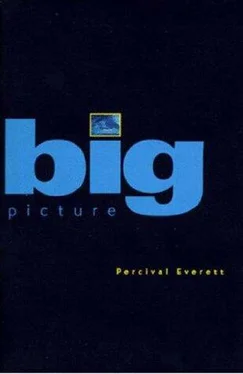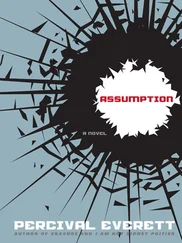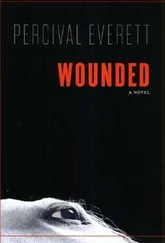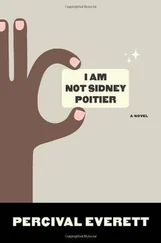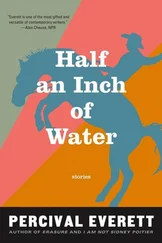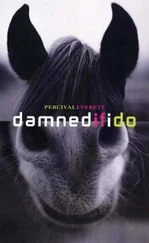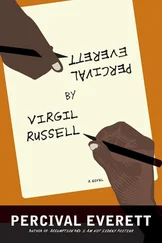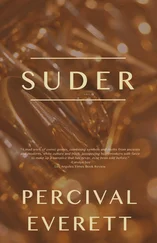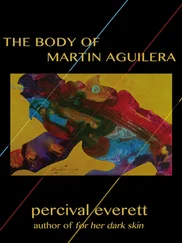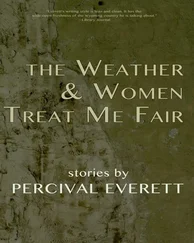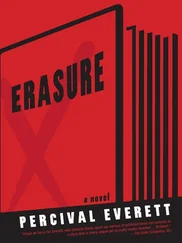The bull stepped back.
“The gate’s open. Go.” Lawrence stood in front of the bull, thinking he wished he were drunk just to have a decent excuse for standing there like a fool. He walked along the inside of the pen and tried to urge him out. “Get! Hiyah!”
The bull charged. Lawrence dove to the ground and rolled out of the way, and the bull ran on past and out into the field where he slowed to a walk.
The last pink wash of daylight through the den window was no longer enough. Hiram Finch pulled the beaded chain on the green-shaded lamp beside the table and continued writing. His pen had moved fluidly from a rather controlled script to a loose scrawl that was allowing him only a few words per line. He paused, sipped his tea, then filled his cup again from the fat blue pot that had been a gift from an Australian couple who had come through with a sick horse a couple of years ago. He got up, opened the woodstove, and laid the page down on the red-and-orange-glowing coals. He watched it catch flame and then closed the door. He heard the quiet steps of his wife approaching from the stairs.
“You need another log in the stove,” Carolyn said, sitting down in the overstuffed chair and blowing on a mug of coffee. The aperture of her lips was perfect for playing her flute, which for so many years had lain idle in a drawer somewhere in the house. “I think it’s colder in here than it is outside.”
Hiram put a couple of small alder logs into the stove and poked at them with the iron, loosening the bark to allow the flames to lick through to the wood.
“I think you should just let it go,” Carolyn said.
Hiram nodded and sat back at the table by the window, picked up the pen and tapped it against his corduroy leg. “I suppose that would be the wise and prudent thing to do.”
“I suppose.”
“This table is getting wobbly,” Hiram said, grabbing it by the edge and giving it a small shake.
“You’re just going to get all riled up and then they’re going to do what they’re going to do anyway.” She blew on her coffee. “Just follow the path of least resistance for once.”
“Just leave me alone. Please.”
“Sure thing.” Carolyn sipped from her mug.
“Listen, I’m sorry. I didn’t mean it like that.”
“Okay.”
Hiram sighed. “Christ, I just apologized.”
“And I said ‘okay.’ Okay?” Carolyn stood and looked about the room as if trying to remember some undone task. “I’m going upstairs to read for a while.”
“All right.”
Hiram watched her leave the room. He tossed the pen onto the table and looked out at the lavender-approaching-violet sky. He’d seen a falcon knife through the night out this window earlier, right across the moon like a ghost, and he wanted to see one now. Carolyn was probably right, he should just let it go. He couldn’t stop them. The lion was indeed dangerous; any animal like that which wasn’t terrified of people was dangerous. It apparently was not the least bit shy like other big cats. It came down to kill a lamb or a couple of chickens every couple of weeks and had nearly scared to death a teenage boy who was tending a fence. Although it was unclear whether the animal was actually interested in him, because in the boy’s words it walked by “just as casual as anything.” So they were going to kill him or her; no one knew the sex of the cat. They only knew that it killed and was large and wasn’t much impressed by human presence. Hiram’s irate and raging letter to the county commission wasn’t going to stop them from putting a bounty on the lion’s head. The crazy veterinarian who lived on the hill might be fine for looking into bovine eyes and studying the stool samples of sheep and horses and dogs, but what did he know about lions?
Hiram heard Carolyn upstairs in the study and felt bad for talking to her the way he had. He got up and climbed the stairs, leaned against the doorjamb, and watched her scanning the books in the case.
“I’m sorry about the way I acted,” he said.
“That’s okay,” she said without looking up from the books.
“You’re right about letting it go, you know.”
“Whatever.”
Hiram watched as she took a book and sat down on the love seat. “I’m going to check the horses.” If she did offer a response, Hiram didn’t hear her. He went back downstairs and left the house. He crossed the yard to the stables, finding as he entered that the horses were somewhat agitated, stepping back and forth and complaining a little.
“What’s wrong, girls?” he said, turning on the lights and looking through the center of the barn and out the back. “What’s got you all jittery?” He took the flashlight from the wall by the door and walked across the dirt floor, shining his beam into the corners of the stalls, and petting the noses of his horses. “No food now, silly,” he said to his too-fat Appaloosa. He walked out the other side of the barn and shined the light into the corral, sweeping the baked hard ground for any sign, although he knew this was a wasted effort given the condition of the earth and his ineptitude as a tracker.
• • •
Hiram recalled when he was seventeen and his father’s flock had been attacked by what was thought to be a wolf. Two lambs and two ewes had been torn to pieces and were strewn about the pasture nearest the house. That was the amazing part, that the carnage had been so close. Hiram’s father was upset with eight-year-old Carla because she had the sheepdog sleeping with her in the house.
“At least, he would have barked and I would have known something was going on,” Hiram’s father said. He stood at the fence just outside the back door and looked out across the pasture. “Damn wolf.”
“Zöe could have been killed, too,” Carla said.
Hiram’s father didn’t respond. Hiram had been walking about the pasture. The sheep ran from him every time he drew near, still anxious, still bleating crazily. He was on the other side of the fence.
“Dad, I don’t think it was wolves,” Hiram said.
“And why do you say that?”
“A wolf wouldn’t have killed so many animals.”
“Wolves, then.”
“Wolves don’t kill like that. They would kill only the lambs and eat them; they wouldn’t leave most of them lying all over the place. I think it was dogs. I think somebody’s dogs got loose and went wild.”
“You know as well as I do that there’s a wolf around. You saw him with your own eyes up on the mountain.”
“I think it’s dogs.” Hiram looked down at Carla and then at the border collie who was scratching her ear with a hind foot. “And I think they would have killed ol’ ugly right there if she had been out.”
“Zöe’s not ugly,” Carla said and she knelt to hug the animal around the neck.
Hiram’s father was not much taken with the theory. He just muttered something about getting his rifle.
The following day, a fine rain fell and most of the mountain seemed unusually quiet. Hiram sat astride his horse, Jack, a twelve-year-old gelding who behaved as if he were three. He held his father’s Weatherby rifle across his lap while he watched his father, who had dismounted and was poking through a pile of animal scat with a stick.
“Looks like dog,” Hiram said.
Hiram’s father nodded and climbed back into his saddle. “I don’t know. Got hair in it.”
They rode on up the mountain and Hiram recalled all the stories the Indians told about the wolf and its power and he wanted to believe that the animals were a part of the place, wanted to believe that he was a part of the place. His father and mother always laughed at him when he talked about such things, called him “youthful.” Hiram didn’t know any Indians but he had read a lot about them, especially the Plains Indians, and although he knew that his sources might be questionable, he still wanted to believe them.
Читать дальше
